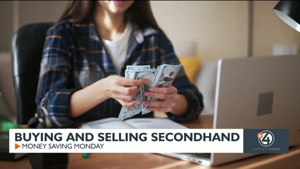The growing popularity of vintage items has created new opportunities for people to profit from old clothes and collectibles. However, financial experts warn sellers to stay vigilant against scammers targeting online marketplace transactions.
“There’s value in stuff that is vintage or older,” said Josh Bergman, a financial education specialist with WSECU.
Bergman cautions sellers to watch for red flags from buyers who rush transactions or ask for personal information.
“If there’s somebody that has a sense of urgency or they’re trying to do something hasty or really trying to lowball you, those are all warning signs,” Bergman said. “But you want to make sure that they’re asking you for your phone number or they want your address, those are all red flags that you want to be cautious about, because you don’t want to send somebody to your home.”
Safe payment and meeting practices
Financial experts strongly recommend cash-only transactions. Sellers should never accept checks, wire transfers, or gift cards.
“Even if it’s a cashier’s check that’s guaranteed by your financial institution, they’re easily faked and they get faked all the time,” Bergman said. “So don’t take any kind of check.”
Always meet buyers in public locations and bring a friend. If that’s not possible, notify someone of your plans.
“I’ll text the friend and let them know, ‘hey, this is where I’m going. This is who I’m meeting,'” Bergman said. “And I’ll show them a picture of their profile.”
Choosing trustworthy platforms
When buying online, examine seller profiles for established accounts with good ratings.
“I prefer platforms that have some kind of rating or like profiles,” Bergman said. “So I can look and see, ‘oh, they have a profile. It was opened in 2010 or wherever. They’ve been around a long time.'”
Avoid sellers who ask for money upfront to hold items, as this is typically a scam. When using peer-to-peer payment platforms, choose established services like Venmo, Zelle, or PayPal that offer buyer protection.
“Like Venmo or Zelle or PayPal, where if something was to happen, there’s a chance that you could be protected and get your money back,” Bergman said.
The most important advice: if a deal appears too good to be true, it probably is.
COPYRIGHT 2025 BY KXLY. ALL RIGHTS RESERVED. THIS MATERIAL MAY NOT BE PUBLISHED, BROADCAST, REWRITTEN OR REDISTRIBUTED.
